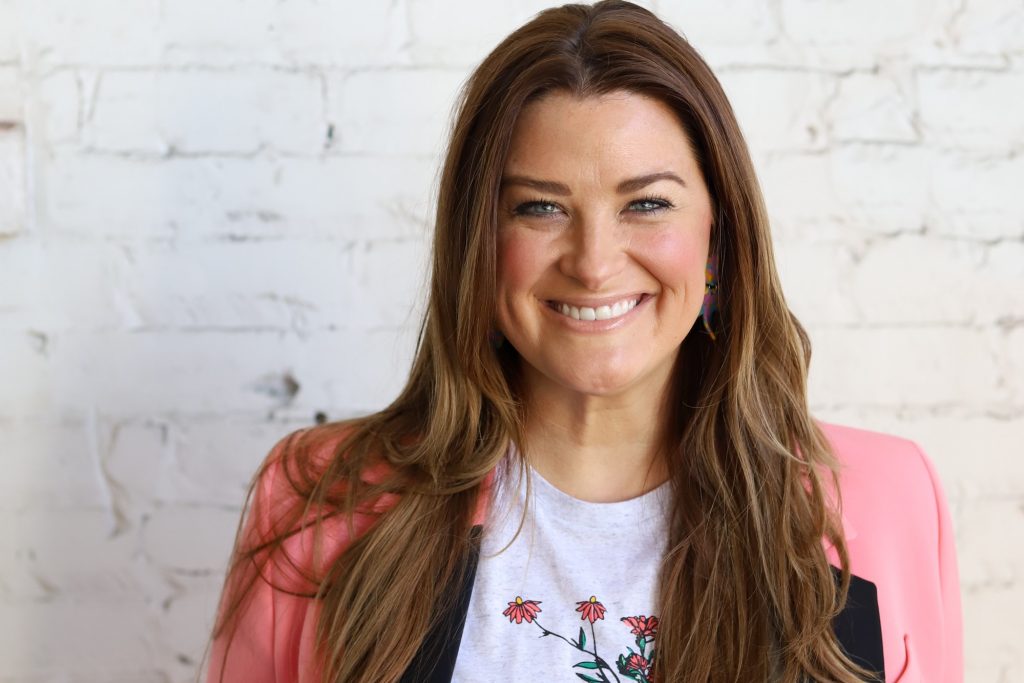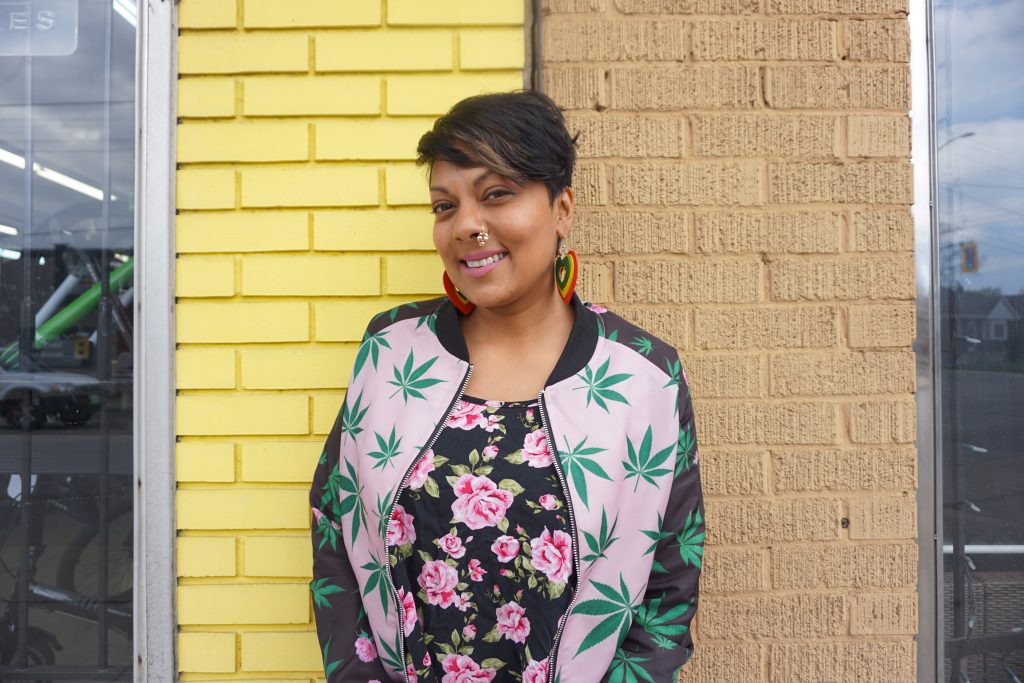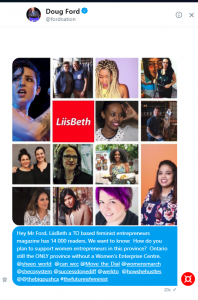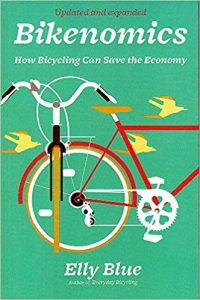
Christina Stembel had a business idea: Bring beautiful, handmade floral arrangements to people who wanted a higher quality than supermarket bouquets and more personal than a floral distribution company. With $50,000 of her own money, she made Farmgirl Flowers happen.
“I used to get dejected about the fact that I couldn’t raise capital as a sole female founder without a pedigree,” says Stembel, who keeps a spreadsheet of the 101 investors and venture capital firms that have turned her down. “But I realized it was just my ego. There’s a myth that if you don’t get VC funding, you can’t be successful, but we’ve grown to $30 million in annual revenue with 50 percent or more growth year over year.”
Though Stembel has had to manage the growth of her San Francisco-based company carefully, funding it with her own savings and the company’s profits has meant that every choice about its growth has been hers to make. “I get to make decisions based on what’s right, not just what’s going to look good to investors,” she says. “My goal is to create a company that I would want to personally buy from, sell to, and work at.”
And that’s what she’s doing: She pays vendors on time, instead of asking for a 90-day payment term, so that the farmers who supply her flowers can pay their own bills; she waited until she could offer her staff of 150 employees full medical benefits and 401ks with a company match before drawing a salary; and she’s created hiring guidelines that don’t require employees to have a degree (high school nor college) or a home address.
Stembel’s story is a typical one for women entrepreneurs. A new study called “Beyond the Bucks”—sponsored by Bank of America and authored by Lakshmi Balachandra, an assistant professor of entrepreneurship at Babson College and former associate at a venture capital firm—looks at why VC funders aren’t investing in women-led startups and how women manage to succeed despite that. The study tackled this disparity: Women own 39 percent of all privately held firms in the US, yet received only 2.2 percent of the $130 billion in venture capital invested in 2018. The situation is slightly better for women owning or leading startups in Canada; they received a measly seven percent of all venture capital.
The study interviewed 30 women entrepreneurs across North America who have achieved annual revenue of more than $5 million. That’s the rubber-meets-the-road spot, according to the study, where “revenue naturally plateaus and the toughest test comes.” All participants in this study soared past that mark; their companies boast average revenues of $43 million. The study’s goals were simple: understand the difficulties faced by women entrepreneurs in the male-dominated world of startups and identify the strategies women use to overcome those obstacles. Without an injection of VC cash, many of the women in the study found a different and perhaps more satisfying path to success through organic growth, which allowed them to explicitly consider the needs and well-being of their employees and communities—factors that male-driven companies tend to consider as second-tier metrics.
The study found that women entrepreneurs faced three major systematic roadblocks to success.
The first we know all too well: network exclusion. That’s the classic “It’s who you know, not what you know” world, otherwise known as the “boys’ club” where deals happen, usually in places men like to socialize, such as the golf course or over drinks.
The second is less well known but no less harmful: market misperceptions. That refers to the double disenfranchising of women founders. Investors discredit their ideas and leadership simply because they are women. Then investors fail to take women-led startups seriously due to gendered assumptions about the markets women entrepreneurs serve. Business guys call it the “the mommy market,” their blatant sexism blinding them to the fact that women drive some 80 percent of consumer spending. That’s a mother load of a market that women entrepreneurs are clearly positioned to tap into. Take for instance Spanx founder Sara Blakely, who had difficulty attracting investors for what would become a multi-billion-dollar business.
But it’s not just VC funders overlooking—or, more to the point, not seeing—women entrepreneurs. Balachandra points to the Forbes Most Innovative Leaders of 2019 list as an example. Out of 100 featured leaders, only one woman made that list. “How did they come up with the list?” she asks, laughing. “It’s written by two white men. [They] started with Fortune 500 companies, of which less than 10 percent are run by women. And at some point, the publisher, who is also a white man, saw the list and said, ‘Yep, this is who we want to highlight.’” In other words, their starting point to defining innovation left out half the population.
And that underlines the third major roadblock women founders face, which is the hardest to overcome: managing expansion with underfunding. Even women entrepreneurs who successfully hurdle over the first two roadblocks to launch a viable business still find themselves systematically locked out of the traditional venture capital system, according to Balachandra.
So how does a superheroine entrepreneur grow her company by leaps and bounds without the extension ladder of VC capital? Without outside investment to catapult strategy and development, women founders often bootstrap their firms, using their own personal savings to launch their enterprises. Then they pour business profits into growing their companies and sales organically.
While hugely difficult, following that strategy has a considerable upside for feminist founders. Through organic growth, founders can maintain ownership and control of their companies and embrace slow expansion, investing more consciously in human capital along the way. For the study, Stephanie Kaplan Lewis, co-founder and CEO of Her Campus Media, explained the approach her company took and how it worked well for her. “There were some years where we didn’t grow as much as we would’ve liked, but at the same time, we also were profitable for 10 consecutive years. We’ve never had to lay anyone off,” said Kaplan Lewis.
For all the benefits, that strategy rarely earns the industry respect that hyper-growth (grow big, sell fast) “unicorns” command, even though companies that grow organically, by definition, produce actual profits and have proven value in the marketplace, unlike investor favourites like WeWork or Amazon, who have enjoyed VC investment while operating in the red for years. Balachandra blames that credibility gap on our fixation with a “traditionally masculine way of thinking.” And there’s a big downside to that, as it “leads us to overvalue these unicorns or venture-backed startups because they were the ones who could get the support of these big investors, who are 94 percent men.”
Balachandra says the metrics that male-dominated VC firms use to target investments are heavily weighted towards financial performance and overlook other indicators of company performance and value such as employee retention, stakeholder satisfaction, and environmental impact. While women-led firms often perform well on the latter, their businesses often get passed over for initial investments that can spur rapid growth. And that won’t change, Balachandra says, until we have more women in decision-making roles.
So What’s A Women Entrepreneur to Do?
It will take time to infiltrate the masthead of business magazines and knock the sexism out of male VC investors; in the meantime, women entrepreneurs have found other options to grow their businesses.
If they can’t bootstrap a startup with personal savings, they can pursue debt, though that’s not without big downsides; while it does allow a founder to keep control of her company, debt can be expensive to service. And also difficult to even get if you are a woman. Balachandra explains that women founders often face that “having the right connections” roadblock, especially if their company doesn’t have sufficient assets to secure the amount of money that they need. Said Stembel: “I can’t get a bank loan because [Farmgirl Flowers doesn’t] pattern-match what banks are looking for.” She cites a lack of personal assets and big advance purchase orders (“Our orders come in within a week of when they’re delivered”). While government-sponsored lending programs exist, such as the Small Business Administration in the US, their interest rates are not cheap.
Women can also fund growth by trying to negotiate lines of credit with suppliers, though they often crash into roadblock one again: the boys’ club. “Women we talked to for the study told us that they found that people weren’t willing to extend those lines of credit to a woman or to someone they were less familiar with,” says Balachandra.
Another option for women leading startups is to find individual investors, sometimes called angel investors, but again, angel investors are more often men (77 percent), and male angel investors have considerable more wealth to invest (cutting checks 41 percent greater than their women counterparts, according to a 2017 study by the Wharton School of the University of Pennsylvania). And roadblocks one through three suggest those deep-pocketed male angel investors are more likely to invest in male-led enterprises.
But men–and women—who avoid investing in women’s startups are missing out not only on the chance to back powerful, industry-shaping startups but to potentially get big returns on their investment. Take Aden & Anais. When Raegan Moya-Jones couldn’t attract traditional investors for her new baby product company, she was forced to build the business on her own. Now, she is able to reap all the financial benefits, telling the study she “ended up a very successful entrepreneur…[after] build[ing] a business from scratch that now generates over $100 million in annual revenue.”
Where there is considerable will, women entrepreneurs often find a way to succeed, as Stembel, Kaplan Lewis, Moya-Jones, and the 27 other women interviewed for the study show. But their paths were considerably more difficult as systemic, sexist obstacles slowed or blocked their progress and those of many others.
Interestingly, when women entrepreneurs do make it, against all the odds, they tend to pay it forward to the people and communities that made their success possible. According to the Wharton study, women who have made enough money to become investors themselves consider a founders’ gender to be seven times more important than men do. And women investors place more than twice as much importance on social impact as men do.
We think that means investing in female-led startups helps women make the world a better place. Double win.
Liisbeth is an indie, ad free, feminist magazine that supports the feminist economy. Please consider supporting our work! [direct-stripe value=”ds1562329655623″]
Related Articles
https://www.liisbeth.com/2016/03/01/slow-growth/
https://www.liisbeth.com/2019/04/30/butchers-bakers-changemakers-the-nightwood-society/

























